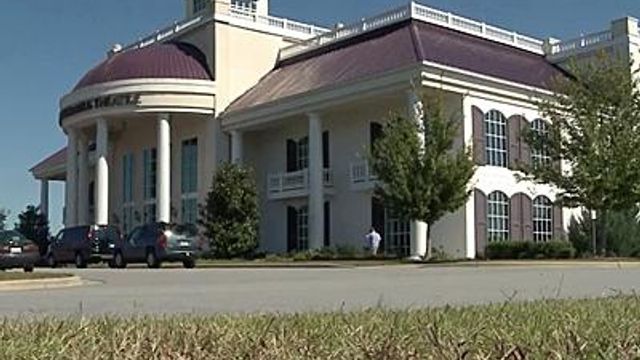Roanoke Rapids to recoup some of losses in theater project
The city of Roanoke Rapids is expected to make about $80,000 per year in gaming licenses and another $150,000 in rent revenue as a result of a new two-year leasing deal involving what used to be the Roanoke Rapids Theatre.
City leaders approved a lease-to-purchase deal in August to lease the 1,500-seat entertainment complex to Arkansas-based HSV Entertainment, which renamed the venue Royal Palace Theatre.
If HSV decides to purchase the theater when the contract expires, the city will sell it for $7.25 million.
The theater now includes 24-hour electronic gambling and has 200 machines, which the theater's manager, Kaine Riggan, calls a supplemental form of income.
Riggan said it also serves as a way to advertise for upcoming shows.
In addition to revenue from gaming licenses and rent, the city will also get $3 for every ticket sold.
It's too early to determine how much revenue will be brought in through concert sales, but in the first few shows since the company has taken over, Riggans said, there have been more than 800 people attending shows on the average.
"It's been my goal all along not to shut it down and board it up," Roanoke Rapids Mayor Emery Doughtie said Thursday. "I'm very well pleased with what HSV Entertainment has brought to Roanoke Rapids and the surrounding area."
The city still has about $17.5 million of a $21.5 million loan that it took out in 2005 to build the theater along Interstate 95 in an effort to attract tourists and help boost the economy.
But with a combination of low ticket sales, management and name changes and attempts to sell the facility, the city never generated enough money to pay off its loan.
That forced city leaders to increase the local sales tax rate in 2008.
Prior to HSV, the city had been using the theater as a reception hall.
HSV executives believe their business model can and will work.
"We want to make sure that everybody that walks through those front doors knows exactly what we have going on here, and we want them to buy a ticket," Riggan said.











